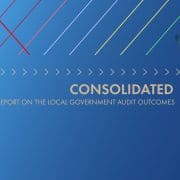|
Getting your Trinity Audio player ready...
|
An informed citizenry is an empowered citizenry. Whether you’re someone who wants to exercise your civic responsibilities and get involved in how your municipality is run, or whether you just wish you could understand the complexities of the system a little better, we have put together a list of useful tools that will help you.
For the most part the applications rely on open data sources to bring their information to the public. Open data, as described by the Open Knowledge Foundation is “data that can be freely used, reused and redistributed by anyone – subject only, at most, to the requirement to attribute and share alike”. This means that it has to comply with some requirements, such as availability and access (the data must be available as a whole, preferably by downloading over the internet, and must also be available in a convenient and modifiable form); reuse and redistribution (its terms of use must permit such); and universal participation (everyone must be able to use, reuse and redistribute, with no discrimination against fields of endeavour or against persons or groups).
There is a growing global movement towards making information – including government information – open. If readily accessible, information relating to science, finance, weather, the environment and more, can be used in beneficial and developmental ways. South Africa has taken a few steps in this direction with the establishment of its open data portal. The site offers publicly available information and statistics on aspects of South Africa such as agriculture, foreign trade, national accounts, GDP and more. Not all the data is supplied by the government – data from sources such as the World Bank, the African Bank, Transparency International and the UN Statistics Division is available, as well as that from Statistics South Africa.
These online tools will allow you to use open data to keep tabs on what your municipality is doing.
Open By-laws South Africa
Open By-laws South Africa is a project that will help South Africans be more informed about the legislation that governs them.
By-laws are local laws that apply to your specific municipality, and they regulate many aspects of day-to-day life in South Africa, such as the control and management of stormwater run-off from developed properties of those in development, use of fireworks, laws relating to dogs and cats, where buses and taxis may stop to pick up passengers, how your municipality can charge for water, and what you may do in your local parks.
The site presents municipal by-laws in open formats that encourage readability and re-use. Users are free to share and re-use the by-laws, even for commercial purposes, provided that credit is given to Open By-laws South Africa.
The project is run by Greg Kempe, with support from Code for South Africa (Code4SA).
Open Gazettes
Government gazettes are a critical source of information and record of South African history. They should be easy to find and use, and freely available to everyone. The Open Gazettes website aims to achieve just this.
The project is a collaborative project of Code4SA, the Southern African Legal Information Institute and the African Networks of Centers for Investigative Reporting – with support from The Indigo Trust and Code for Africa.
“Considering that national and provincial copies are printed weekly, along with separate copies for liquor licenses, tender bulletins, and regulations, proclamations and general notices, and urgent notices in separate copies throughout the month, it is incredibly hard to source a specific notice without being specifically pointed at it,” says Code4SA.
Access to older gazettes may also carry a price tag if commercial providers are involved.
So far Open Gazettes supplies documents dating back to 2012 and divided into national and provincial sections.
“As the official mouthpiece of government, the Government Gazette is the one platform that citizens can use to make sure that government is acting in our best interests. But we can only do this if we can access it,” Code4SA says.
Citizens are expected to keep up to date with all legislation published in the Government Gazette, and “ignorance is not permitted as a defence for violating a law or regulation”, says the Official Publications Depository Manual.
EWN municipal audits
The EWN municipal audit portal keeps track of unauthorised, irregular, fruitless and wasteful expenditure made by municipalities throughout South Africa. All data is provided by the Auditor-General.
If you’re a resident, just enter your street address to receive information on your municipality’s unauthorised, fruitless and wasteful expenditure. Exploring further will supply these types of expenditure for the past four years of audits, so performance may be tracked. Results may be filtered according to the types of audit outcome.
Irregular expenditure is defined as expenditure that was not incurred in the manner prescribed by legislation, and is an indicator of irregularities in processes followed in the procurement of goods and services, as well as a measure of a municipality’s ability to comply with legislation relating to expenditure and procurement management.
Fruitless and wasteful expenditure is expenditure that was made in vain and that could have been avoided had reasonable care been taken.
Unauthorised expenditure is expenditure that municipalities incurred without provision having been made for it in the council-approved budget or which does not meet the conditions of a grant.
Municipal Money
This web-based tool is an initiative of the National Treasury, which says that it is “demonstrating its commitment to improving transparency and to the cause of open data in sharing one of its most strategic datasets through Municipal Money.”
The aim is to make its municipal financial data, collected over a number of years, publicly and widely available in order to increase transparency, strengthen civic oversight and engagement, and promote accountability. Users can get a clearer picture of how and where public money is spent and whether such spending falls within acceptable norms.
Municipal Money is designed to inform citizens on their local authority’s financial performance and allows comparisons between municipalities, using raw data from the treasury’s data website. Users are not required to have any financial background or knowledge, because the site uses a variety of visual elements and tools – including interactive maps, charts, graphs and short videos – to make the data accessible and digestible. It also provides different levels of detail in explaining key financial concepts, so you, the user, can select the specific amount and level of information that suits you.
“Municipal Money empowers financial and non-financial audiences alike, by taking complex amounts of financial and non-financial data, extracting pertinent information, summarising that information and presenting it in a user-friendly manner,” says the treasury.
Local Government Handbook
The online local government handbook features a complete guide to the structure and activities of all municipalities in South Africa, including tenders and vacancies. The publication is also available in print form, but this may not be updated as regularly as the online version, say publishers Yes! Media.
The information is supplied by the municipalities concerned as well as sources such as Auditor-General reports, Statistics South Africa, and the National Treasury.
The website also gives information on provincial and national government, such as recent audit outcomes, the members of the various legislatures and their political affiliations, provincial departments and their associated public entities, national government clusters, and the structure of national departments.








